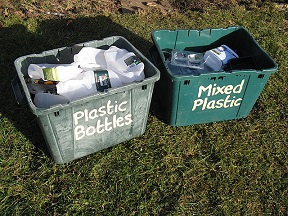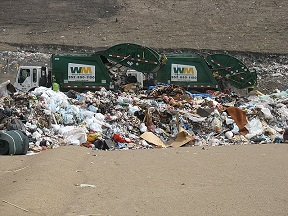Plastics are wonderful materials; as far as their functionalities in direct use are concerned. But in many cases, they are a headache in the waste phase. For a long time, the waste phase used to be of minor importance to developers and producers,. But that’s going to change. The plastic soup is all around us. One of the pathways is to decompose plastics to virgin materials and then reprocess these to plastics.

‘We have a dual problem,’ Henna Pukkinen et al wrote in 2017. ‘Resources are depleting and wastes are accumulating. A development of novel, efficient pre-treatment and conversion method for heterogeneous waste streams would not only provide an answer to this dilemma but introduction of these systems could also reduce emissions of greenhouse gases, and importantly provide a boost to local economy. The use of thermal conversion methods such as pyrolysis and gasification as a recycling method for plastic-containing waste is not yet a common practice; although the commercialization of these methods has been pushed forward for a long. However, the recent developments of thermal conversion methods as well as the pressure to move towards circular economy create an interesting starting point for the final commercialization.’
Thermal plastic decomposition
A company that has been successful in developing technologies to process plastics to virgin materials is VTT daughter Olefy in Finland. It has been so successful that the mother company has decided to spin out the daughter. They claim, according to Biofuels Digest, that their process can convert most of the world’s waste plastics back to usable virgin materials; even affordably so, and an infinite number of times. This is great news, because it might end littering the planet with plastic even at the remotest places on earth.

The new process can be done in a single step. This will vastly enable plastic recycling and reduce its costs. It might make recycling the preferred option for plastic waste management; preferred even over options like landfilling. The pilot plant is running at VTT Bioruukki Pilot Centre in Espoo, Finland. The technology is by far not yet mature enough to be installed soon; the first industrial demonstration operation is expected to be operational by 2026. Currently, the company is discussing partnerships and is negotiating with investors. Although the process is a secret, Biofuels Digest suspects that the plastics will be gasified with steam, at 640-750oC.
Public demand for plastics to be recycled
At the moment, most plastic waste ends up in landfills. A small proportion (less than 10%) is being recycled, primarily through mechanical recycling. But this recycled plastic is of reduced quality, making it unfit for purposes like food packaging and pharma applications. The new process, that would return the plastic to virgin materials, would therefore constitute a major step forward.
In response to public demand, consumer product companies have set big targets for adding recycled plastics into their products. Therefore, demand for the new technology isn’t expected to go away soon. ‘Plastic waste is one of the five major global problems that VTT has strategically set itself to solve,’ says Antti Vasara, CEO of VTT. ‘Olefy is a quantum leap in recycling that will change the way the world views plastic by making it truly circular and guiding us even faster towards carbon neutrality.’
Recycled plastics to virgin materials
And Matti Nieminen, head of technology at VTT, adds that the new process will put an end to poor quality of recycled plastics. ‘With the Olefy recycling process, the quality of the plastic is equal to virgin grade, so it can be recycled indefinitely and materials no longer need to end up in landfills.’ This may ‘completely change the dynamic of global oil consumption. Olefy will significantly reduce the need to use new oil for making plastic and maybe even create a new economic incentive to clean up plastic from land and water as it becomes a valued commodity.’ And Timo Sokka, head of business at Olefy, says to Biofuels Digest, that ‘demand for recycled plastics is growing much faster than the supply…. Olefy responds perfectly to these challenges by making plastics recycling truly feasible on an industrial scale.’
In short, these developments come timely. And it’s not just VTT that develops this technology to reprocess plastics to virgin materials. New York based company Anellotech is on the same trajectory. It is for a good cause, this research and development.
Interesting? Then also read:
The role of chemistry in the reduction of plastic waste
Plastic recycling: urgent, but a major problem
Ban plastics? Back to science-based material policy
